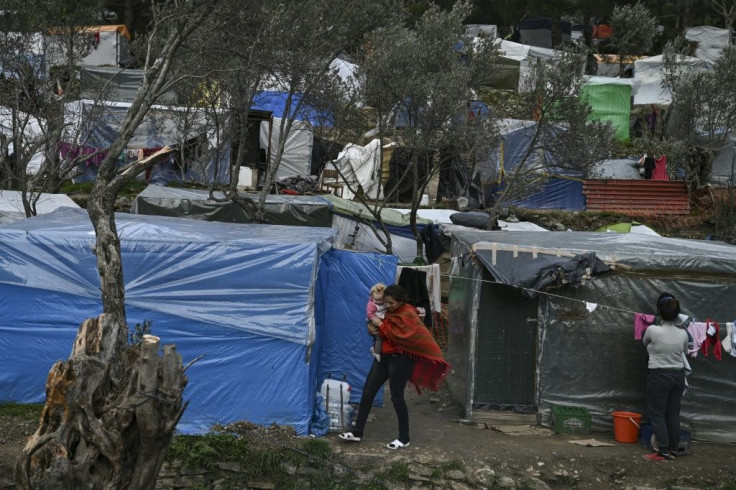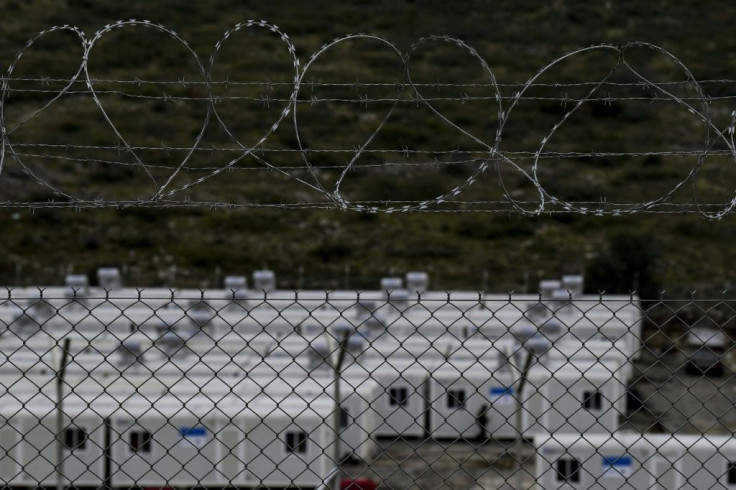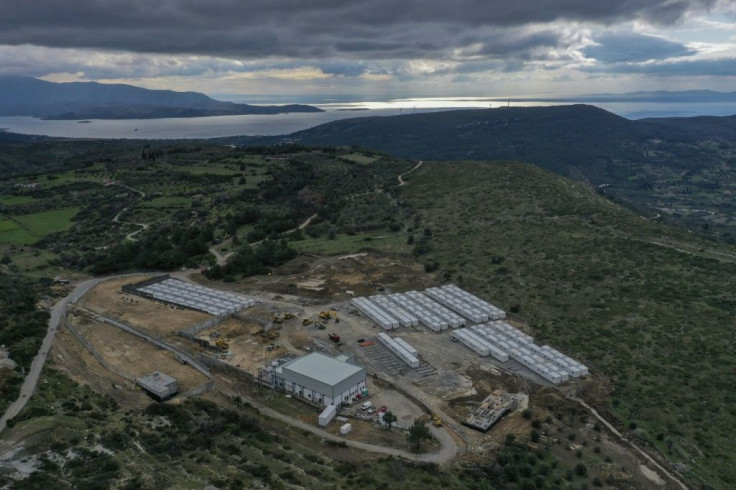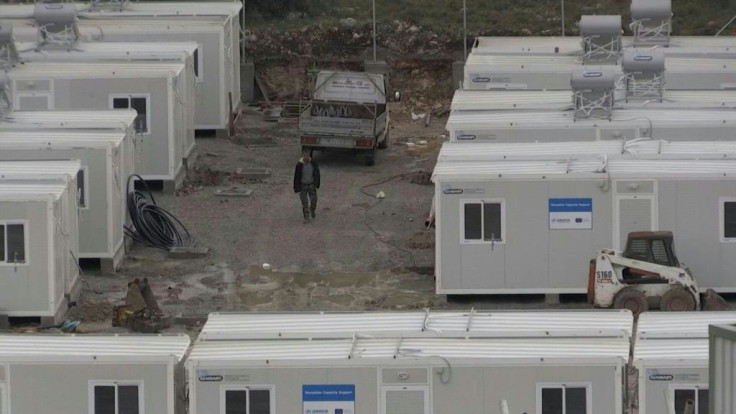Samos Villagers Up In Arms Over New Refugee Camp Plan
For many of those who live on the Greek Aegean island of Samos it is absolutely clear -- they want no more refugees, no new camps and to be left alone as they were before the migrant crisis broke in 2015.
"We, the people who live here, we oppose this idea of a camp," says an angry Nikos Ftinogiannis.
"We don't want Samos and the other Aegean islands to become warehouses for humans."

Just a stone's throw from his village of Mitilinii in the arid Zervou area, more than a hundred containers have already been positioned in an enclosure marked out with barbed fences to serve as a new, closed camp.
In an effort to cope with overcrowding in Samos and other Aegean islands where some 38,000 people seeking asylum in Europe squeeze into facilities meant to take only 6,200, the government plans to replace them with "closed camps."
While work elsewhere has been delayed, on Samos -- just off the Turkish coast below Izmir -- one of the closed camps for 1,200 people is nearly ready, a local source said.

But villagers and their local representatives want nothing of it, demanding instead that all the migrants simply leave.
"There is no more room on Samos, the migrants have to leave the island," said Ftinogiannis, 62, a local representative.

Lesbos, Chios and Samos were all major tourist centres but in 2015, a flood of refugees fleeing war in Syria and beyond turned up on their shores, risking life and limb to get to Europe and safety.
Under an EU accord with Turkey in 2016 on managing the migrant flows, the Greek islands became massive refugee processing centres, outraging many locals who saw their way of life at risk.
As what was meant to be a stop-gap solution appeared increasingly permanent -- and the government's new closed camp system reinforces that fear -- locals have mounted more and more protests against the new facilities.

"These people came here to stay... we want them to leave Samos, that they go to another country," said Giannis Hatzikalis, who also lives in Mitilinii which has a population of about 1,900.
"All the people must resist. Another solution must be found. There are places with large uninhabited spaces in Greece that can accommodate thousands of people," said Sotirios Kardiakos, 92.
The current camp on Samos, near the port of Vathy, was originally designed to hold 680 people -- but it is now home to 10 times that number, 6,800.
"The situation in Samos right now can be described as certainly inducing shock and shame," said Pipina Katsari of the UN High Commission for Refugees.
"The conditions, the living conditions... are really desperate," Katsari said.
While the EU-Turkey accord has largely worked, it and the camp system is under pressure again from a fresh wave of migrants beginning last year, which is slowing down the processing process.
About 10,000 migrants have been processed and left in recent months but new arrivals mean little change overall.
"The long-term measures of the government are welcome," Katsari said.
"But in view of the desperate conditions it is important and essential that the urgent transfer of persons who have the authorisation to depart from the island is done," Kastari added.
While conditions are tough and some refugees complain about not knowing when they will be able to leave, others remain positive.
Khalid Nizar, a Palestinian aged 32 who has been in the Samos camp since February last year, said: "We do not have easy conditions but I am still alive... That means a big hope for me and the future. I am looking for the future, not for today."
© Copyright AFP 2024. All rights reserved.











